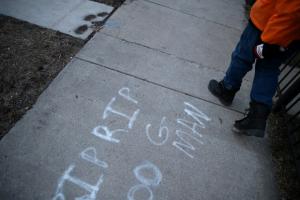Kicked to the Curb
Book Forum
 Gentrification is no myth, and saying so is magical thinking. Through oral histories and a solid grasp of urban history and urban geography, journalist GW Gibson shows not just its quite palpable and direct contribution to the displacement of low-income people, but, using New York City as his template, traces the radical decline of affordable housing city-wide. Case closed!
Gentrification is no myth, and saying so is magical thinking. Through oral histories and a solid grasp of urban history and urban geography, journalist GW Gibson shows not just its quite palpable and direct contribution to the displacement of low-income people, but, using New York City as his template, traces the radical decline of affordable housing city-wide. Case closed!









Spread the word